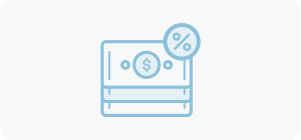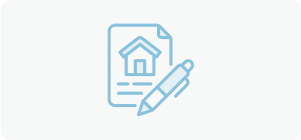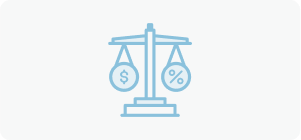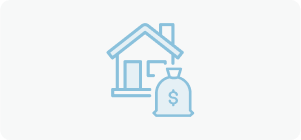Utah FHA Mortgage Rates: Calculate and Apply for an FHA Loan
As of February 25, 2026, a 30-year fixed FHA loan rate in Utah is 4.875%(5.829%APR).
Use the tool below to customize Utah FHA loan rates for 30-year, 20-year or 15-year terms. You’ll also find the maximum and minimum lending limits set by the Federal Housing Administration for every county in Utah.
Use our simplified rate finder.
Whether or not you are a first-time homebuyer in Utah, you likely need to secure mortgage financing to purchase a home. One option you might consider is a loan secured by the Federal Housing Administration (FHA). An FHA loan might be easier to get than a conventional mortgage and have looser credit requirements and a lower required downpayment. It’s important to understand FHA loans and their advantages and disadvantages before you decide which type of mortgage to take out for your home purchase.
Loan Limits for FHA Loans
The FHA establishes loan limits based on the property and its location that are adjusted each year.
In 2023, the floor and maximum limits for FHA-insured mortgages are $472,030 for single-occupancy properties and $1,089,300 for four-occupancy properties.
However, these limits differ in higher cost-of-living areas as detailed in the county-by-county chart for Utah below.
↓ Try Our Utah FHA Mortgage Calculator ↓
Utah County-by-County FHA Loan Limits in 2024
The loan limits for FHA mortgages vary based on the county in which your home is located. Take a look at the following table to determine the loan limit for your county in Utah (One unit is most common):
| County | One Unit | Two Unit | Three Unit | Four Unit |
|---|---|---|---|---|
| Beaver County | $498,257 | $637,950 | $771,125 | $958,350 |
| Box Elder County | $744,050 | $952,500 | $1,151,400 | $1,430,900 |
| Cache County | $498,257 | $637,950 | $771,125 | $958,350 |
| Carbon County | $498,257 | $637,950 | $771,125 | $958,350 |
| Daggett County | $498,257 | $637,950 | $771,125 | $958,350 |
| Davis County | $744,050 | $952,500 | $1,151,400 | $1,430,900 |
| Duchesne County | $498,257 | $637,950 | $771,125 | $958,350 |
| Emery County | $498,257 | $637,950 | $771,125 | $958,350 |
| Garfield County | $498,257 | $637,950 | $771,125 | $958,350 |
| Grand County | $607,200 | $777,300 | $939,600 | $1,167,700 |
| Iron County | $498,257 | $637,950 | $771,125 | $958,350 |
| Juab County | $601,450 | $769,950 | $930,700 | $1,156,650 |
| Kane County | $498,257 | $637,950 | $771,125 | $958,350 |
| Millard County | $498,257 | $637,950 | $771,125 | $958,350 |
| Morgan County | $744,050 | $952,500 | $1,151,400 | $1,430,900 |
| Piute County | $498,257 | $637,950 | $771,125 | $958,350 |
| Rich County | $579,600 | $742,000 | $896,900 | $1,114,650 |
| Salt Lake County | $619,850 | $793,500 | $959,200 | $1,192,050 |
| San Juan County | $498,257 | $637,950 | $771,125 | $958,350 |
| Sanpete County | $498,257 | $637,950 | $771,125 | $958,350 |
| Sevier County | $498,257 | $637,950 | $771,125 | $958,350 |
| Summit County | $1,149,825 | $1,472,250 | $1,779,525 | $2,211,600 |
| Tooele County | $619,850 | $793,500 | $959,200 | $1,192,050 |
| Uintah County | $498,257 | $637,950 | $771,125 | $958,350 |
| Utah County | $601,450 | $769,950 | $930,700 | $1,156,650 |
| Wasatch County | $1,149,825 | $1,472,250 | $1,779,525 | $2,211,600 |
| Washington County | $593,400 | $759,650 | $918,250 | $1,141,150 |
| Wayne County | $997,050 | $1,276,400 | $1,542,900 | $1,917,450 |
| Weber County | $744,050 | $952,500 | $1,151,400 | $1,430,900 |
Loan Limits for Home Equity Conversion Mortgages (HECMs) for Seniors
The Federal Housing Administration also offers a reverse mortgage program for seniors called Home Equity Conversion Mortgages (HECMs).
Seniors with qualifying properties who own them outright or owe very little on their mortgages can get an FHA HECM to access some of the equity in their property.
In 2023, the maximum FHA loan limit for HECMs nationwide is $1,089,030 regardless of whether or not you are located in a high-cost-of-living area.
What Is an FHA Mortgage?
An FHA mortgage is a mortgage loan that is backed by the Federal Housing Administration. The FHA provides security for these mortgages but does not directly lend money to homebuyers. Instead, the FHA guarantees FHA-backed mortgages offered by private lenders, credit unions, or banks.
Since the mortgages are backed by the federal government, it helps to reduce the risk lenders would otherwise face in the event of default. This means that lenders are more likely to approve mortgage applications for people who have lower credit scores or less money available for a downpayment than they might require for conventional mortgages.
FHA Loans vs. Conventional Mortgages in Utah
Conventional mortgages are loans offered by banks, private mortgage companies, and credit unions. They are not backed by the federal government and have more stringent credit and downpayment requirements. Because of this, it can be harder for some people to get approved for conventional mortgages.
Credit Requirements
To be approved for a conventional mortgage, you must have a minimum credit score of at least 620. However, many lenders have stricter credit requirements before they will approve people for conventional mortgages and might require scores of 680 or above.
The Federal Housing Administration’s minimum credit score requirement is at least 580 if you plan to make a down payment of 3.5%. If you have a credit score as low as 500, you might be approved for an FHA loan as long as you can make a down payment of 10% or more.
However, many lenders will require a minimum score of at least 580 to approve a prospective buyer for an FHA loan. If you would like to check your credit score, or think you want to improve your credit score in order to qualify for a mortgage, contact us about our credit repair program.
Down Payment Requirements
You can get an FHA loan with a down payment of as little as 3.5% of your mortgage amount.
The required down payment for a conventional mortgage ranges from 3% to 20%, depending on your lender.
Mortgage Insurance Requirements
Another difference between FHA loans vs. conventional mortgages is the mortgage insurance requirement. If you get a conventional loan and make a 20% down payment, you won’t be required to carry private mortgage insurance (PMI).
If you make a down payment of less than 20% on a conventional mortgage, you can cancel your PMI once you have 20% equity in your home. Your lender is required to automatically end your PMI once you have a loan-to-value ratio of 78% if you don’t cancel it at the time it reaches 80%.
For an FHA loan, you will be required to carry monthly FHA mortgage insurance regardless of the size of your down payment. If your down payment is less than 10% of your loan balance, you will have to carry it for the life of your loan.
If it is 10% or more, you will still need to carry FHA mortgage insurance for 11 years as explained below.
How Does a Utah FHA Loan Work?
The Federal Housing Administration does not fund the mortgages it backs. Instead, it guarantees FHA loans in case of borrower default. If a borrower defaults, the FHA will pay the lender the remaining balance of the mortgage loan.
Borrowers must carry FHA mortgage insurance as a requirement for obtaining an FHA loan.
Because of the FHA’s guarantee and the insurance requirement, lenders are more willing to extend mortgage loans to borrowers with less-than-perfect credit and lower down payments than they might for conventional loans.
Here’s a closer look at how FHA mortgage loans in Utah work.
Two Types of FHA Insurance
Borrowers have to pay two types of FHA insurance to get an FHA mortgage loan. The first is an upfront insurance premium that must either be paid upfront or rolled into the principal balance. The second type is an annual premium that is divided into monthly amounts and included as a part of your regular mortgage payments.
1. Upfront Mortgage Insurance Premium
The upfront mortgage insurance you will have to pay to get an FHA loan is 1.75% of your total loan balance. This is collected at closing, or added to your loan amount.
For example, if you take out a mortgage for $400,000, your upfront insurance cost will be $7,000.
While you can pay this amount upfront, most people instead choose to roll it into their principal balance. Doing so is not counted towards your loan-to-value (LTV) ratio and won’t affect your required downpayment.
2. Annual Mortgage Insurance Premium
Your annual mortgage insurance premium depends on your loan’s term and the loan-to-value ratio. If your LTV is greater than 90%, you will be required to carry FHA mortgage insurance during the entire term of your loan.
For example, if you make a down payment of 5%, you will need to carry FHA mortgage insurance until you refinance to a different type of loan, pay your mortgage in full or sell your home.
If you instead make a down payment of 10% or more, you will be required to carry FHA mortgage insurance for 11 years.
How to Qualify for an FHA Loan in Utah
To qualify for an FHA loan in Utah, you’ll need to meet the following requirements:
Note: If you are unsure if you or the property meet these requirements, please contact us, and we can help you figure it out.
Before and During Loan Process:
- Have a minimum credit score of 500 or 580, depending on your lender and down payment size
- Intend to purchase a home that you will occupy (FHA mortgages are for primary, owner-occupied homes only)
- Must make a down payment of at least 3.5% (or 10% if your credit score is lower than 580)
- Must have a verifiable and steady income source
During the Loan Process:
- Have the home appraised by an FHA-approved appraiser
- Must get an inspection
- Property must meet the FHA’s minimum standards as reported by an inspector
After Closing:
- Will occupy the home no later than 60 days after closing
Your Credit and FHA Loans in Utah
It’s important to understand your credit and how it might impact your eligibility for an FHA loan.
One of the major factors that lenders consider is your credit score and credit history to determine your creditworthiness. This means the level of risk that you might default on your payments.
There are three major credit reporting bureaus in the U.S. that gather and report credit history information, including TransUnion, Equifax, and Experian. While each of these three agencies has a proprietary credit scoring model, most lenders rely on scores reported by FICO, which was formerly known as the Fair Isaacs Corporation.
FICO scores range from 300 to 850, and the score ranges indicate the borrower’s creditworthiness as follows:
- 300 to 579 – Poor
- 580 to 669 – Fair
- 670 to 739 – Good
- 740 to 799 – Very good
- 800 to 850 – Excellent
The higher your credit score, the likelier you are to be approved for any type of mortgage. People with excellent credit also typically enjoy the lowest rates of interest since they are deemed to pose little risk of default.
What appears in your credit history is also important, but it is easier to get an FHA loan than a conventional loan if you have certain adverse information on your credit reports.
If you have the following adverse events in your credit history, you will need to complete a waiting period before applying for an FHA-backed mortgage:
- Foreclosure – Three years
- Chapter 7 bankruptcy – Two years post-discharge
- Chapter 13 bankruptcy – 12 months post-discharge
- Medical collections/chargeoffs – No waiting period
- Other collections – Might need to be paid off
- Mortgage/rental payments – Current for the previous 12 months
Debt-to-Income Ratio
The FHA has varying guidelines for a borrower’s debt-to-income (DTI) ratio based on their credit score and how much cash they have available.
Your DTI is the ratio of your monthly debt payments to your monthly income, which is your front-end DTI.
The FHA also considers your principal, interest, taxes, and mortgage (PITI) as compared to your monthly income. This is also known as the ratio of your payment to income or PTI. This is the back-end DTI or what your debt-to-income ratio would be after securing an FHA loan and having a new mortgage payment.
The normal DTI for an FHA loan is 43%, but loans might be approved with higher DTIs of 50% or more when the following compensating factors are present:
- High credit score
- Minimal payment shock with the new mortgage payment as compared to your existing rent or mortgage payment
- Significant cash reserves for emergencies post-closing
- Steady employment for several years
- Strong residual income each month
If your DTI is too high, you can consider paying off debts with the largest monthly payments. Certain types of increases in your income could also help decrease your DTI.
When Is an FHA Loan the Best Option?
While conventional loans might have higher down payment requirements, and approval can be more difficult, they are typically cheaper than FHA loans over the long term. This is because PMI will only be required until you reach an LTV of 80% on a conventional loan, which is when you can cancel it.
By contrast, FHA loans require FHA insurance for either 11 years with a 10% down payment or the life of the loan if you can’t make a 10% down payment.
However, an FHA loan might be the best option in the following circumstances:
- You have a lower credit score.
- You have certain types of adverse information on your credit reports, such as bankruptcy, foreclosure, or charge-offs.
- You have a higher debt-to-income ratio.
- You intend to use gifts to make your down payment.
FHA loans can also be attractive for first-time homebuyers because of the low down payment and looser credit requirements.
When Might You Consider a Conventional Loan vs. an FHA Loan?
You might want to consider a conventional loan instead of an FHA loan in the following situations:
- You intend to make a 20% down payment to avoid PMI.
- You have an excellent credit score.
- You want a mortgage with a shorter term than 15 to 30 years.
- You qualify for the lowest interest rates.
- You need a loan to purchase a second home or an investment property and don’t intend to live in one of the units.
FHA Loan Pros and Cons
Pros of FHA Loans
- Available for people with lower credit scores vs. conventional mortgages
- Lower down payments than many conventional loans
- Ability to use gifts to pay the down payment
- Backed by the Federal Housing Administration
Cons of FHA Loans
- Must purchase FHA insurance and pay ongoing monthly premiums for 11 years or the loan’s life
- Can’t be used to purchase a non-owner-occupied investment property or second home
- Higher rates of interest than conventional mortgage loans
- More stringent property qualifiers
Alternatives to FHA Loans
If you don’t qualify for a Utah FHA loan, there are a few alternatives you might consider. If you are a military service member or veteran, you might qualify for a loan backed by the Department of Veteran Affairs (VA).
The U.S. Department of Agriculture (USDA) also backs USDA loans for low and moderate-income individuals who plan to buy homes in qualifying rural areas.
Finally, the Utah Housing Corporation offers several mortgage programs for which you might qualify.
Lock In Your FHA Rate Today
An FHA loan can be a great option for first-time homebuyers and others who might not have much money saved for a down payment and those with lower credit scores. Since this type of mortgage is guaranteed by the Federal Housing Administration, it might be easier to qualify for than a conventional mortgage. To learn more about FHA loans in Utah from City Creek Mortgage, contact us today.





